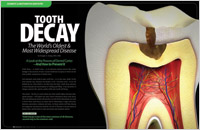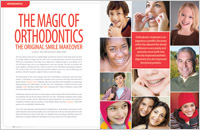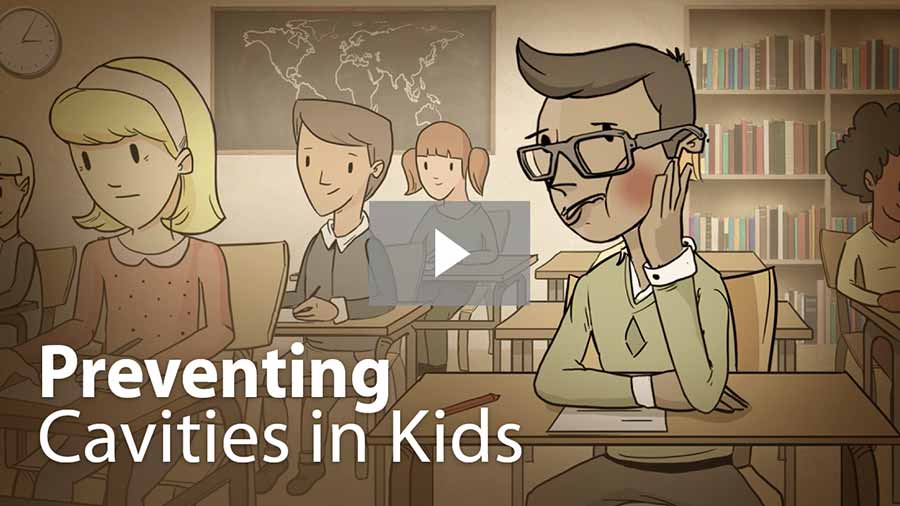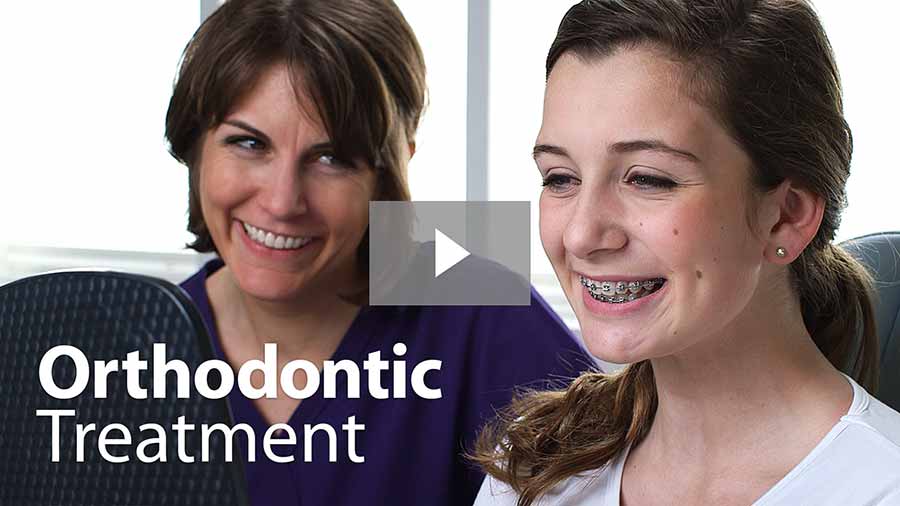Just as you go through different stages in life, you may have different concerns about your dental health at various times. Some problems — tooth decay and dental injuries, for example — may be an issue at any time; others tend to occur more often at certain ages. Let's look at some of the most common dental concerns, from childhood through the golden years.
Children
Tooth decay, caused by oral bacteria, remains the most prevalent chronic disease of childhood (and adulthood). Yet it is highly preventable with good oral hygiene, a diet low in sugar, and regular checkups at the dental office. These healthy habits should be encouraged as soon as the first baby tooth appears. We would be happy to advise you on the best techniques for keeping your children's teeth clean and healthy at all stages of dental development.
Like cavities, dental injuries can happen at any age. According to the U.S. Centers for Disease Control, sports-related dental injuries account for more than 600,000 emergency room visits each year. But as with tooth decay, prevention can make a big difference: A comfortable, well-fitting mouthguard is an essential piece of sports equipment — and you can get one custom-made for your child right at the dental office.
Around age 7, when a child has a mix of baby teeth and adult teeth, orthodontic problems may start to become apparent. It's often advantageous to begin treating some issues (such as crowding) before a child reaches puberty, because the mouth is still growing and developing at this time. An orthodontist can use special appliances created to harness the body's natural growth processes to correct certain problems of tooth alignment. However, as long as you are in good dental health, you're never too old to get your teeth straightened.
Adults
Adults age 25 to 64 comprise about half of the world's population. A vast and diverse group, they share some common concerns when it comes to dental health. Many want to fix cosmetic dental problems, such as crooked or stained teeth, to benefit their career or personal life. Depending on the cause of the problem, solutions may include orthodontics, teeth whitening, veneers, crowns, tooth replacement or a combination of these treatments.
Some adults begin to experience the problem of sensitive teeth around middle age. This can have a variety of causes, including erosion of tooth enamel and/or gum recession. Either of these will expose the sensitive inner tooth material called dentin, resulting in discomfort from stimuli such as cold or pressure. If you are experiencing tooth sensitivity, we can determine the cause and recommend an appropriate treatment.
Gum recession may be sign of a potentially serious problem: gum disease. This is a common dental concern among adults, affecting nearly 50% of those over age 30. Other signs of gum disease can include inflamed gums, bleeding during flossing or brushing, and loose teeth. Treating gum disease in its earliest stages can prevent more serious problems, such as tooth loss, from developing — so be sure to bring any of these issues to our attention as soon as possible.
Seniors
The percentage of people over 65 is expected to grow quickly, as yesterday's baby boomers pass retirement age. The good news is, more people are keeping their natural teeth than ever before. Still, missing teeth, and the related health problems they can cause, remain a significant issue. But teeth generally don't go missing all at once; they are usually lost over the course of years — and in many cases, they could have been saved with appropriate dental treatment. This is why it's so important to have regular dental checkups and to report any concerns as soon as they occur. Fortunately, even if you do lose teeth, modern dentistry offers numerous options for restoring your smile and improving your quality of life with replacement teeth. Dental implants are today's state-of-the-art method of replacing teeth, while bridgework and dentures remain viable alternatives. We would be happy to discuss your options with you.
Another common concern among seniors is dry mouth (xerostomia), which is often a side effect of both prescription and over-the-counter medications. It's important to keep us updated on all the medications you are taking, and to let us know if you are experiencing any symptoms of dry mouth or discomfort.
No matter what your age, it's important to get the dental treatment you need… and to visit the dental office regularly for checkups, professional cleanings and preventive services. Paying attention to your oral health can help you keep your teeth working optimally — and looking great — for your whole lifetime.
Related Articles

Tooth Decay — A Preventable Disease Tooth decay is the number one reason children and adults lose teeth during their lifetime. Yet many people don't realize that it is a preventable infection. This article explores the causes of tooth decay, its prevention, and the relationship to bacteria, sugars, and acids... Read Article

Dentistry and Oral Health for Children Dear Doctor magazine brings you this wide-ranging overview of milestones and transitions in your child's dental development. Learn how to protect your children from tooth decay, dental injuries, and unhealthy habits while getting them started on the road to a lifetime of oral health and general well-being... Read Article

The Magic of Orthodontics Proper alignment of the teeth is basic to “Smile Design.” Their position dictates how they work together and affects the way you look and smile. Only orthodontic treatment can move teeth into the right position. Simply put, when things look right, they probably are right. Learn the basics of smile analysis and design and whether the magic of orthodontics will work for you... Read Article



